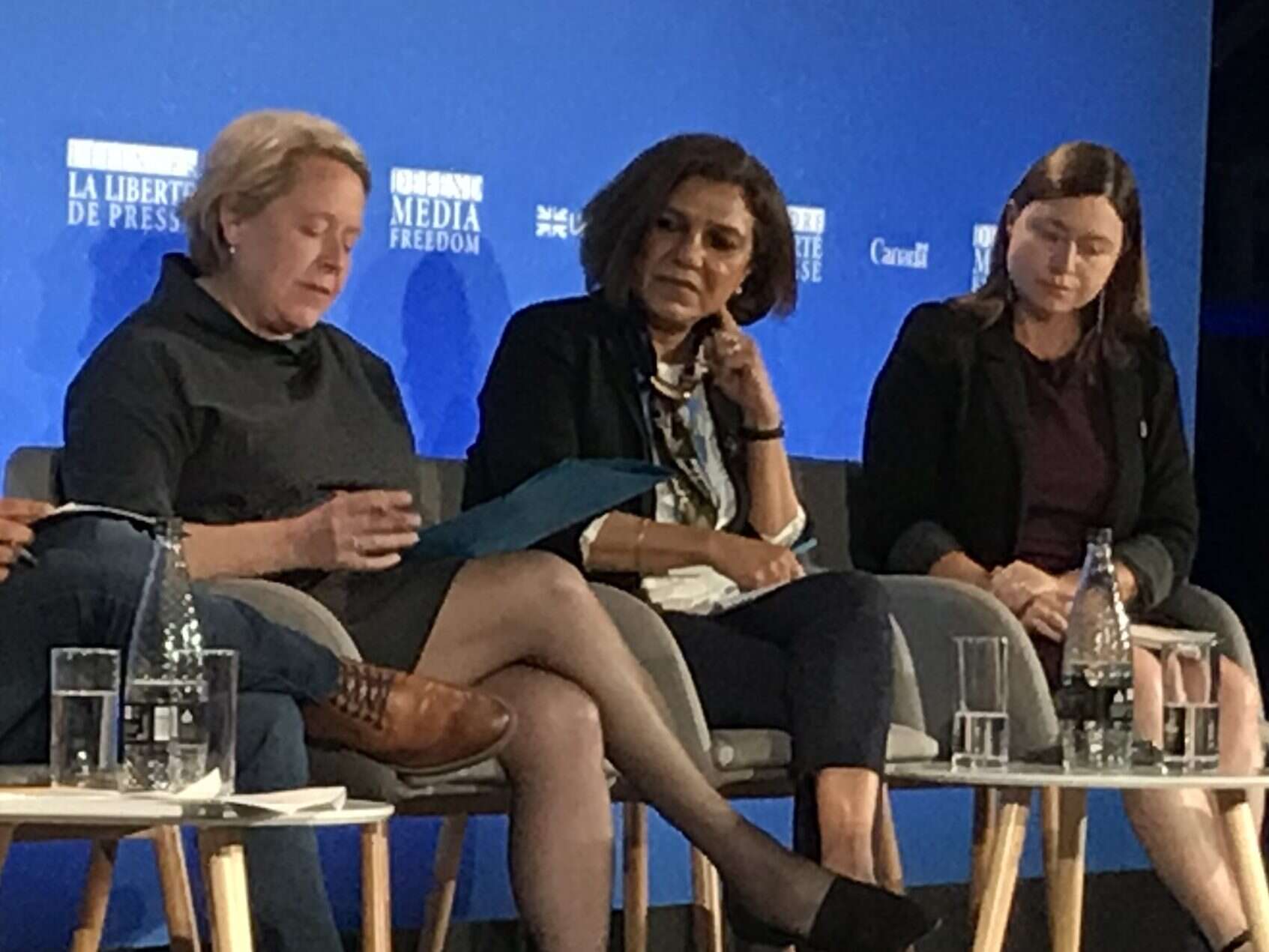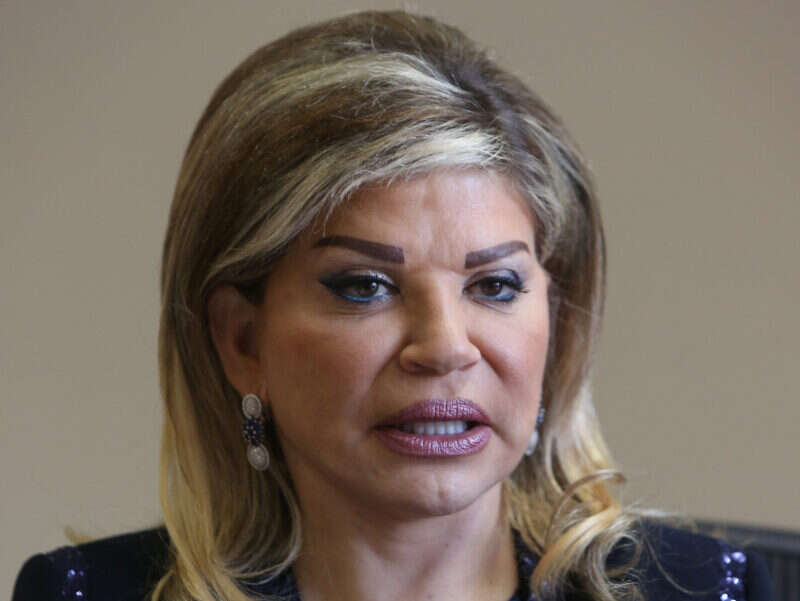
Journalists around the world need to take threats against women “much more seriously because they are driving women out of the news industry,” the Government’s inaugural media freedom conference heard today.
Nadine Hoffman, deputy director of the International Women Media Foundation, also told a panel on the safety of female journalists that their male colleagues should be taught how to be good allies.
Hoffman (pictured, right) said: “We know that female journalists are facing all the same risks that their male colleagues do in the field, but what we have to focus on are some of the nuances and additional layers of risk that come with being a woman in the news industry today.”
The biggest issues explored during the panel were online threats, which Hoffman said are “often connected to very real physical threats”, and sexual harassment – both issues which she added can be used to silence female journalists.
More than two thirds of female journalists have experienced online harassment, according to a survey carried out by IWMF.
“If women’s voices are silenced, you don’t have a truly free media. You are missing the voices of a significant part of our population,” Hoffman said.
Ex-journalist May Chidiac (pictured, below), now State Minister for Administrative Affairs in Lebanon, agreed: “This is a way of pushing out women, especially journalist women, from doing their jobs.”
In 2005 Chidiac, then a TV anchor for the Lebanese Broadcasting Corporation, survived an assassination attempt on her life but lost a hand and a leg.
She believes the perpetrators wanted to silence her because “if killing women journalists in Lebanon no-one would be spared anymore”.

May Chidiac. Picture: Reuters/Aziz Taher
In the patriarchal society of Lebanon, women and children are not usually targeted, she said.
“When I became the victim it means it was a kind of message to everybody that from now on you have to keep quiet otherwise you will all face the same fate.”
After returning to on-air work “to prove I could”, the dawn of social media swiftly followed and Chidiac said she started getting streams of abuse.
“Not only were they mocking my disability they were describing me as ‘ugly bitch’ and ‘ugly old lady’,” she said.
“The best way to attack me was to call me Madam Plastic and ‘don’t sit by the chimney because you’ll melt’.”
Chidiac added: “Personally I never considered myself as different from a male journalist but when it comes to online harassment believe me, there is a big difference between men and women.”
Asked what her message would be to young female journalists wondering if the risks are worth it, Chidiac said “you can’t calculate the risk”.
“Being a journalist means taking risks. I wasn’t a reporter on the field. I was a TV presenter and a moderator of a talk show, but still this was a big risk because many of those who followed me didn’t subscribe to what I was saying.
“I never considered myself important enough to become the victim of an assassination attempt.”
As a practical solution to the threats, Hoffman said safety training was “extremely important”, adding that it must be “responsive to the threats women face”.
“It should be given to male colleagues as well, about how to support women colleagues in the field and be good allies to them,” she added.
Sabina Inderjit (pictured, centre), senior vice-president of the International Federation of Journalists, shared a similar sentiment: “I think what’s important for the issue of the safety of women journalists is that it isn’t just a woman issue. It’s an issue for all journalists and it’s an issue for all governments.
“What we have seen across the world is democratic governments where safety has become a major issue so I would say the women journalists need big support from their male colleagues.”
Inderjit urged women journalists to join a union, saying they need to “come together” on these issues.
And Hoffman also said appropriate tools and advice must be given to keep female journalists safe on potentially dangerous assignments rather than just telling them “if you’re a woman you shouldn’t go”.
Picture: Press Gazette
Email pged@pressgazette.co.uk to point out mistakes, provide story tips or send in a letter for publication on our "Letters Page" blog
